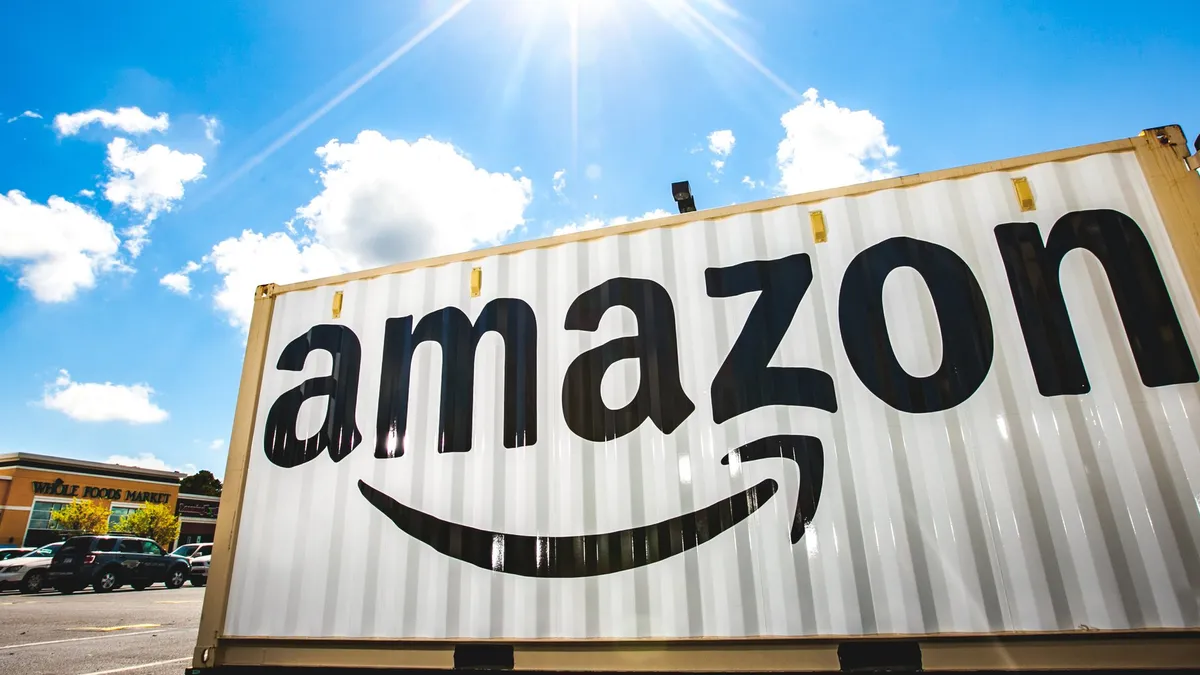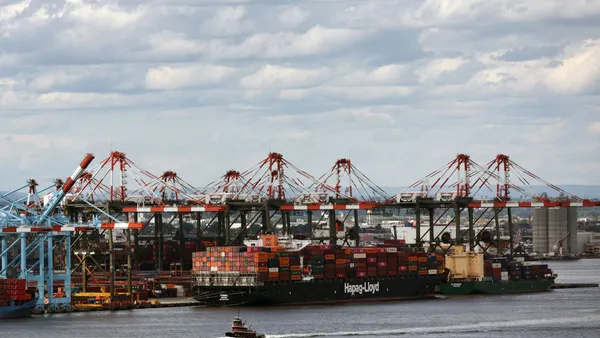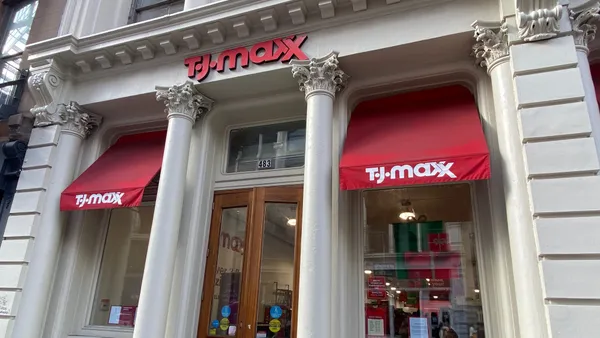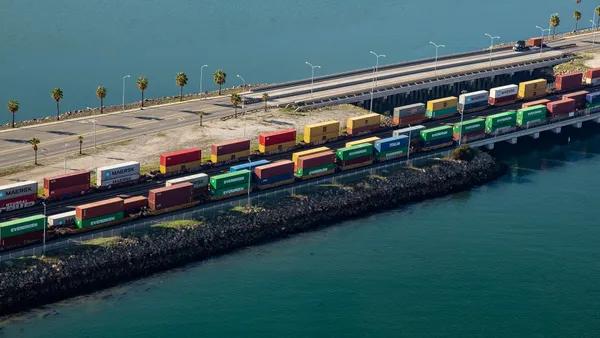Dive Brief:
- U.S. Customs and Border Protection (CBP) selected nine companies to participate in its Section 321 Data Pilot, which collects detailed cargo data from shippers in advance of cargo arriving to a port of entry, according to a press release on Jan. 8. The companies are Amazon, BoxC Logistics, DHL, eBay, FedEx, PreClear, UPS, XB Fulfillment and Zulily.
- The participants will provide cargo origin, content, tracking, recipient and other information to CBP upfront (in addition to what is legally required) for parcels "imported by one person on one day" with a value of $800 or less. Shippers will benefit from reduced costs as these parcels are duty-free and tax exempt.
- The agency hopes this will enable it to better pre-identify potentially illegal cargo, namely, "illicit narcotics, unregulated prescription drugs, brand counterfeits, and unsafe food and beauty products," for more targeted screenings while expediting the process for legitimate shippers.
Dive Insight:
A U.S. House of Representatives Judiciary Committee hearing in July 2019 revealed U.S. e-commerce sites are far behind their international peers when it comes to identifying and removing counterfeit goods from their marketplaces. As a result, enhancing CBP's ability to detect and remove these items could be of particular interest to retailers like Amazon, which has struggled with the growing number of product knock-offs on its site.
Currently, CBP processes 1.8 million express consignment and international mail parcels per day, totaling nearly 600 million each year, according to the release, making it difficult to screen all incoming material effectively. Ensuring the integrity of cross-border and ocean shipments as these volumes increase, particularly when it comes to intercepting illegal drug shipments hidden in legitimate cargo, has been a growing challenge for law enforcement.
Smugglers are often able to take advantage of large-scale carrier operations. "It’s remarkably cheap, and economies of scale work for both legal and illegal cargo owners," Andrew Kinsey, a senior marine risk consultant at Allianz Global Corporate & Specialty, told The Wall Street Journal. Smugglers also benefit from the reliability of legitimate carrier operations while their smaller shipments remain relatively difficult to detect on board, he said.
To tackle this, CBP expanded the scope of the 321 Data Pilot in December 2019, after the pilot's launch in August, to include ocean shipments and international mail, which were originally exempted. It also extended the program's duration from 12 months to 24 months, now ending in August 2021.
After the pilot phase concludes, CBP will review the practice of having shippers submit shipment data in advance of port arrival to determine its impact on screening efficiency. CPB said it will begin to expand access to the program for qualified firms in early 2020.















